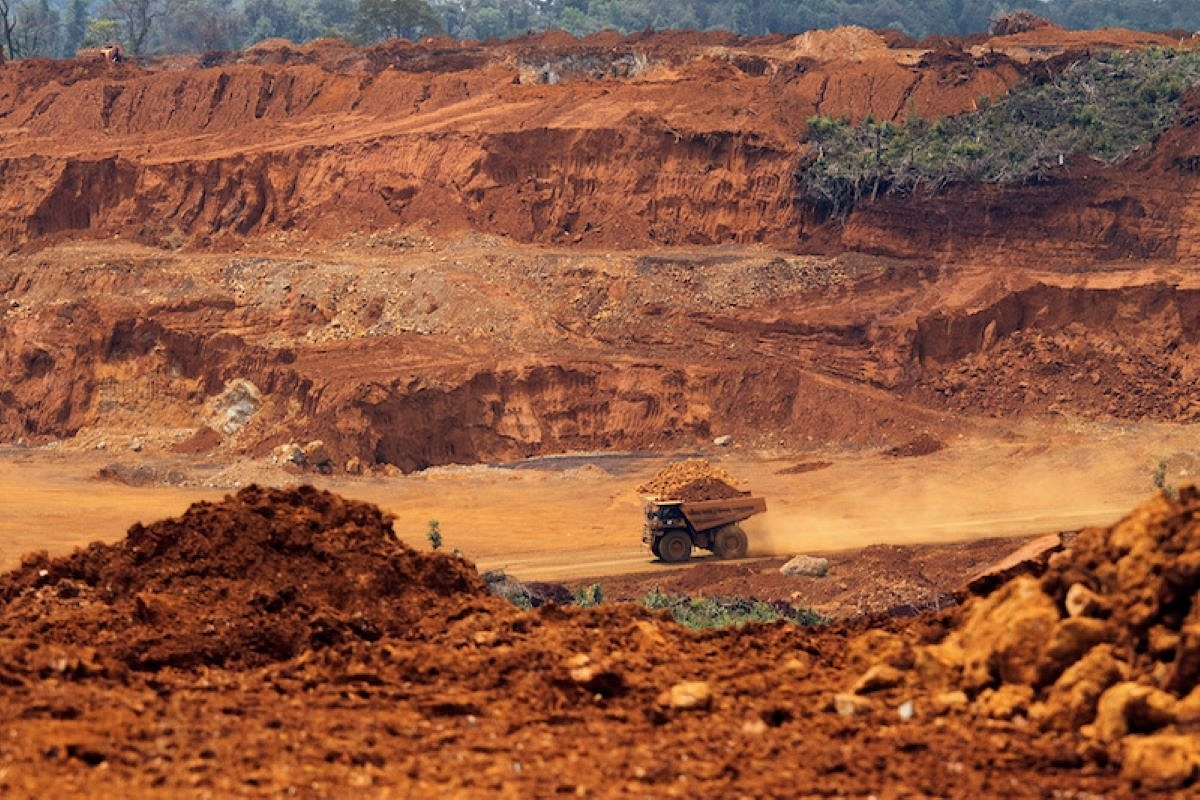News Brief
Indonesia Unveils Subsidy Scheme For Electric Vehicles As Battery Metal-rich Country Seeks To Emerge As Next EV Manufacturing Hub
- Not only nickel, Indonesia also has other important battery materials such as aluminum, copper, manganese and cobalt. But abundance of nickel alone is not enough to propel the nation to become a significant player in the global battery supply chain.

Nickel in Sorowako in South Sulawesi (Asia Financial)
Indonesia on Monday (March 7) announced that it would offer financial subsidies to buyers of new electric four-wheelers and two-wheelers in a bid to drive electric vehicle (EV) adoption in the country.
Under the scheme that will take effect on March 20, an electric scooter purchase will be eligible for a 7 million rupiah (about $460) subsidy. The same amount will be offered to consumers converting internal combustion engine scooters into electric ones.
Unveiling the scheme, the country's Industry Minister Agus Gumiwang Kartasasmita said that the government would provide subsidies for the purchase of 200,000 new electric motorcycles and the conversion of 50,000 conventional two-wheelers to electric ones between March 20 and December 31.
The Industry Ministry also proposed assistance for purchasing 35,900 new electric cars and 138 electric buses during the same period.
The subsidies under the scheme will be available to vehicles manufactured in the country using at least 40% local content. South Korea's Hyundai and China's Wuling meet these conditions.
Among e-scooters, only Gesits, Volta and Selis -- manufactured by local companies Wika Industri Manufaktur, Volta Indonesia Semesta and Gaya Abadi Sempurna, respectively -- meet the threshold.
EV manufacturers looking to sell vehicles by availing subsidies under the scheme are forbidden to increase their selling prices ahead of the program launch.
Through the subsidy scheme, the Indonesian government hopes to improve EV share to 5 per cent of all vehicles sold this year and to 10 per cent in 2024, which it thinks will provide the country with the critical mass needed for industry growth.
Indonesia's aspiration to emerge as a manufacturing hub for electric vehicle (EV) batteries
Indonesia hopes to attract significant foreign investment to support its ambition to develop the domestic battery industry and become a regional EV manufacturing hub.
Indonesia is the world's largest nickel producer, a key battery material, in terms of reserves and output. With 21 million tons of nickel reserves or 30 per cent of world nickel production, Indonesia has the potential to become one of the world's largest electric car battery producers. Besides nickel, Indonesia has other important battery materials such as aluminium, copper, manganese and cobalt.
In 2020, Indonesia banned the export of nickel ore to boost domestic refining of the commodity.
The lithium-ion battery has seen significant advancement in recent years, owing largely to the chemistry of the cathode, which continues to trend toward higher quantities of nickel.
Using nickel in lithium-ion batteries lends a higher energy density and more storage capacity to batteries. This improved energy density and storage capacity means that electric vehicles can get more miles out of a single charge, a concept that has been a key challenge for widespread EV adoption.
Indonesia's nickel-based strategy envisages creating an integrated EV supply chain (from mining and processing to battery and eventually EV production).
But an abundance of nickel alone is insufficient to propel the nation to become a significant player in the global battery supply chain. EV giant Tesla and CATL have yet to announce an investment in Indonesia despite multiple attempts by Jakarta to lure it. The country still does not have a secure supply of lithium.
Australia is the world's largest lithium producer, contributing 52 per cent of the total global output, ahead of Chile's 25 per cent and China's 13 per cent, according to a recent estimate by World Economic Forum. But Chinese companies continue to operate 60 per cent of the world's lithium refining capacity for batteries.
Indonesia's Chamber of Commerce on February 21 signed a pact with the government of Western Australia for the import of lithium.
Another challenge to Indonesia's EV dreams is the rise of Lithium iron phosphate (LFP) batteries compared to the more traditional energy-dense batteries such as nickel manganese cobalt (NMC) and nickel cobalt aluminium (NCA).
LFP batteries do not contain nickel or cobalt in the cathodes. This is a good thing, considering the rising costs of nickel and cobalt. LFP batteries have, as the name suggests, iron and phosphorus. Both iron and phosphorus are less expensive. But LFP batteries pack 30 per cent less energy density than nickel batteries, which is unsuitable for long-range vehicles.
Support Swarajya's 50 Ground Reports Project & Sponsor A Story
Every general election Swarajya does a 50 ground reports project.
Aimed only at serious readers and those who appreciate the nuances of political undercurrents, the project provides a sense of India's electoral landscape. As you know, these reports are produced after considerable investment of travel, time and effort on the ground.
This time too we've kicked off the project in style and have covered over 30 constituencies already. If you're someone who appreciates such work and have enjoyed our coverage please consider sponsoring a ground report for just Rs 2999 to Rs 19,999 - it goes a long way in helping us produce more quality reportage.
You can also back this project by becoming a subscriber for as little as Rs 999 - so do click on this links and choose a plan that suits you and back us.
Click below to contribute.
Latest